Meet Dr. Tim Sobolevskii
“The new testing method I created uncovered so many positive samples that we had not been able to see previously,” said Dr. Sobolevsky. “I felt immensely proud of myself because it reminded me of the impact of my work. What I'm doing has real ethical value, and that's why I love what I'm doing.” It was a defining moment in his career.”
Dr. Tim Sobolevsky became involved in anti-doping laboratory work completely by accident. After completing his Ph.D. in analytical chemistry, Dr. Sobolevsky recalls looking for any type of work that would provide a stepping stone into the industry. His first job happened to be at an anti-doping lab, and he fell in love with the work. “I was using the tools I knew, like chromatography and mass spectrometry, for pretty complex and interesting tasks related to anti-doping testing. It was just a happy accident,” said Dr. Sobolevsky.
In his role as a senior scientist at the UCLA Olympic Analytical Laboratory, Dr. Sobolevsky says the most important topic for them is figuring out how to maintain a high quality of work. He regularly asks his colleagues questions such as, “How can we continuously and adequately respond to the very high standards that exist in our industry? Anti-doping testing is a very highly regulated environment, and if you don't improve every day, then you will be out of business.”
Dr. Sobolevsky says that the relationship between his lab and partners, like Phenomenex, is a critical factor in their ability to maintain such high standards for their work. “I've been working here at this level for more than six years, and Phenomenex has always been a very dependable partner for us. It seems like a pretty big company and, yet, when I need to get in touch with someone right away, I always can. This is something that I appreciate in my relationship with vendors when they can respond to me quickly,” said Tim. Timely responses are critical in Tim’s line of work.
Some people say that athletes always stay one step ahead of anti-doping labs. The athletes can be using drugs of which labs are not yet aware—and, thus, not testing. Anti-doping scientists work hard to stay afloat by keeping pace with the development of new drugs. “If you want to be successful and survive in this industry, you need to respond very quickly to any new drugs that can appear on the market,” said Dr. Sobolevsky
One of Dr. Sobolevsky's most proud accomplishments occurred a few years ago. He was looking into the metabolism of a particular drug that was widely used by athletes because it was known to only be detectable for two weeks. While looking into the metabolism of this drug, Dr. Sobolevsky was able to identify the metabolite that extended the detection period from two weeks to roughly six months. This led to an avalanche of positive results all over the world.
There are only two World Anti-Doping Agency (WADA) accredited laboratories in the United States. Because it’s a small population, the community is very tight-knit. “The atmosphere in the anti-doping industry is very warm, and I have enjoyed being part of this family,” said Dr. Sobolevsky.
Dr. Sobolevsky’s advice to anyone looking to enter the anti-doping industry is to find a good mentor: “I think it's very important to have someone who you can talk to about work. Getting knowledge and experience from someone who has been in this area for many years is important. Unfortunately, it's difficult to find someone with the required skill set.” Dr. Sobolevsky encourages those interested in his line of work to be proactive and find ways to gain experience.
Devoted to his craft, Dr. Sobolevsky is always thinking about what problems he can solve each day. Tim said, “I feel like this is my thing, and I want to keep doing this as long as I can.”



